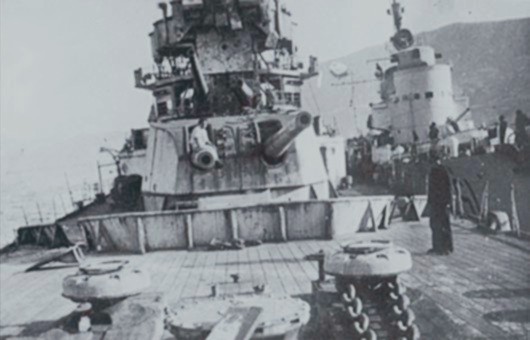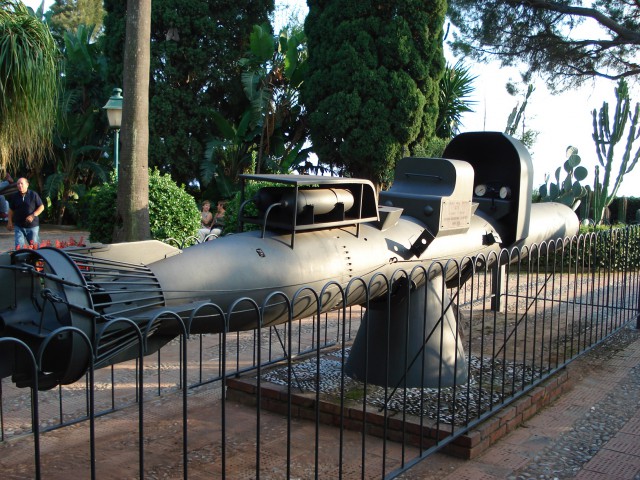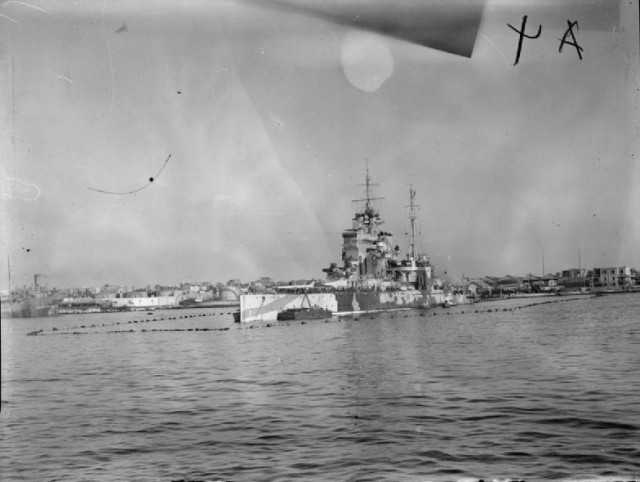Under the rule of Benito Mussolini, an Italian frogman unit called La Decima was created. The unique group consisted of men capable of the most outstanding bravery and exploits and was designed as a shock force unit of the Italian Navy. When Italy entered WWII on the side of Germany, La Decima was swiftly organized to counter the threat posed by British vessels in the Mediterranean.
Italian speedboats were manned, not by Kamikaze-type men, but by mariners. They were trained to drive their boats straight into the sides of enemy vessels and then hurl themselves out of the craft moments before impact – which accounted for the loss of HMS York. The Italians also favored manned torpedoes, and they took part in a daring raid on Alexandria. Frogmen stealthily swam towards British ships moored at Gibraltar and attached mines to them. They also accounted for a heavy toll on British warships.
In fact, during the Battle for the Mediterranean, La Decima accounted for the total loss of 20 merchant marine ships and five warships, amounting to over 200,000 tons of enemy shipping.

The specialized unit were ardent patriots, and when the ousted dictator Mussolini set up the Italian Social Republic in northern Italy, many La Decima personnel joined him there and began conducting anti-partisan raids. Under the command of the SS General, Karl Wolf, these mariners-turned-land-soldiers earned a reputation for savage anti-partisan and anti-communist actions. Clearly, La Decima personnel were brave, resourceful, patriotic and die-hard fighters, but nothing exemplified the daring bravery of these Italian warriors more than the men who operated the Italian Pigs.
The Pig, (Maiale) was a human torpedo, consisting of a two-man crew sitting on top of an electrically propelled high explosive. They motored in slowly and warily towards an enemy vessel and then detached the explosive warhead from the torpedo. They then attached it to the enemy ship and motored away from the scene of impending destruction. Perhaps the most astounding use of Pigs occurred during the Italian raid on Alexandria.

The raid on Alexandria was set in motion on December 3, 1941, when the Italian ship Scire left the harbor of La Spezia en route to Leros. On board were three Pigs. At Leros, they took on board six La Decima members. Among them was Lieutenant de la Penne. On December 18, 1941, the Scire, avoiding British spotter planes and naval patrols, approached to within 2 kilometers of Alexandria Harbor and then released the three Pigs into the water, manned by three two-man crew.

When the British opened the harbor defense boom to allow passage for some destroyers, the three Italian Pigs motored into Alexandria harbor and proceeded to attach limpet mines to the destroyer HMS Jervis; the battleship HMS Queen Elizabeth; the destroyer HMS Valiant and the Norwegian tanker Sagona. However, there were many difficulties for de la Penne and his crewmate Emilio Bianchi.
First, the engine of their torpedo stopped, and the frogmen had to push it manually. Then Bianchi had to surface due to problems with the oxygen provider, so de la Penne had to push the Maiale alone to where HMS Valiant lay. There he successfully placed the limpet mine, just under the hull of the battleship.
However, as they both had to surface, and as Bianchi was injured, they were discovered and captured. De la Penne was incarcerated on board the Valiant under sea level, and coincidentally just over the place where the mine had been placed but refused to divulge any information. When the mines detonated, de la Penne escaped from the Valiant uninjured.
Three enemy ships were sunk and another severely damaged as a result of Italian daring. They displayed their bravery and refusal to break under interrogation even when sitting upon an imminent explosion but in the end, all the divers became prisoners.
